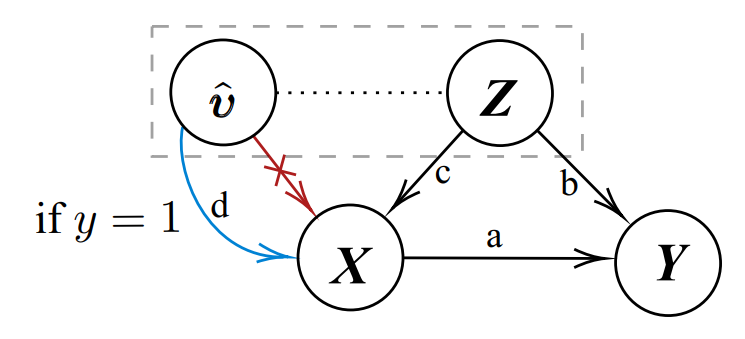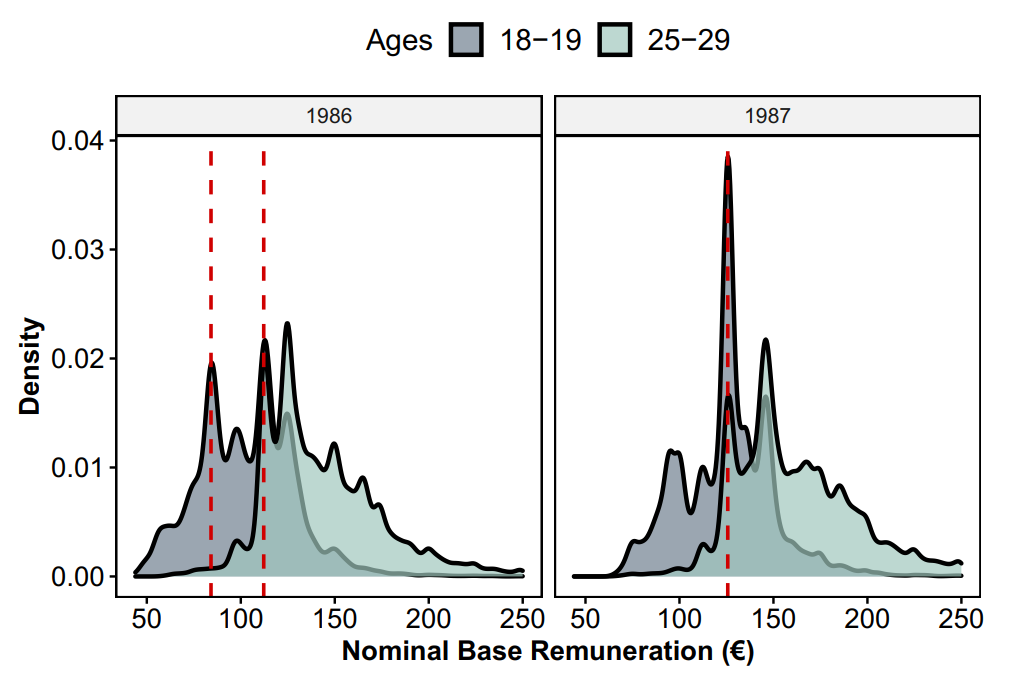
Abstract
Sequentially adding control variables to a regression to investigate their effect on a structural parameter is econometrically meaningless when controls are intercorrelated, as the order in which control variables are added will influence how the structural parameters change. As a solution, I develop a novel order-invariant conditional decomposition for the logit model. Furthermore, this logit decomposition can explain which variables are responsible for the heterogeneous treatment effect on the treated. I illustrate the utility of the decomposition with an application. Using a natural experiment to estimate the displacement effects of the minimum wage in Portugal, I find its effects to be heterogeneous. Moreover, by using the decomposition, I find that the heterogeneous impacts are 65% explained by firms, 28% by the worker, and 7% by tenure; implying that the primary determinant of the minimum wage effect on workers’ displacement is the firm they work for.
